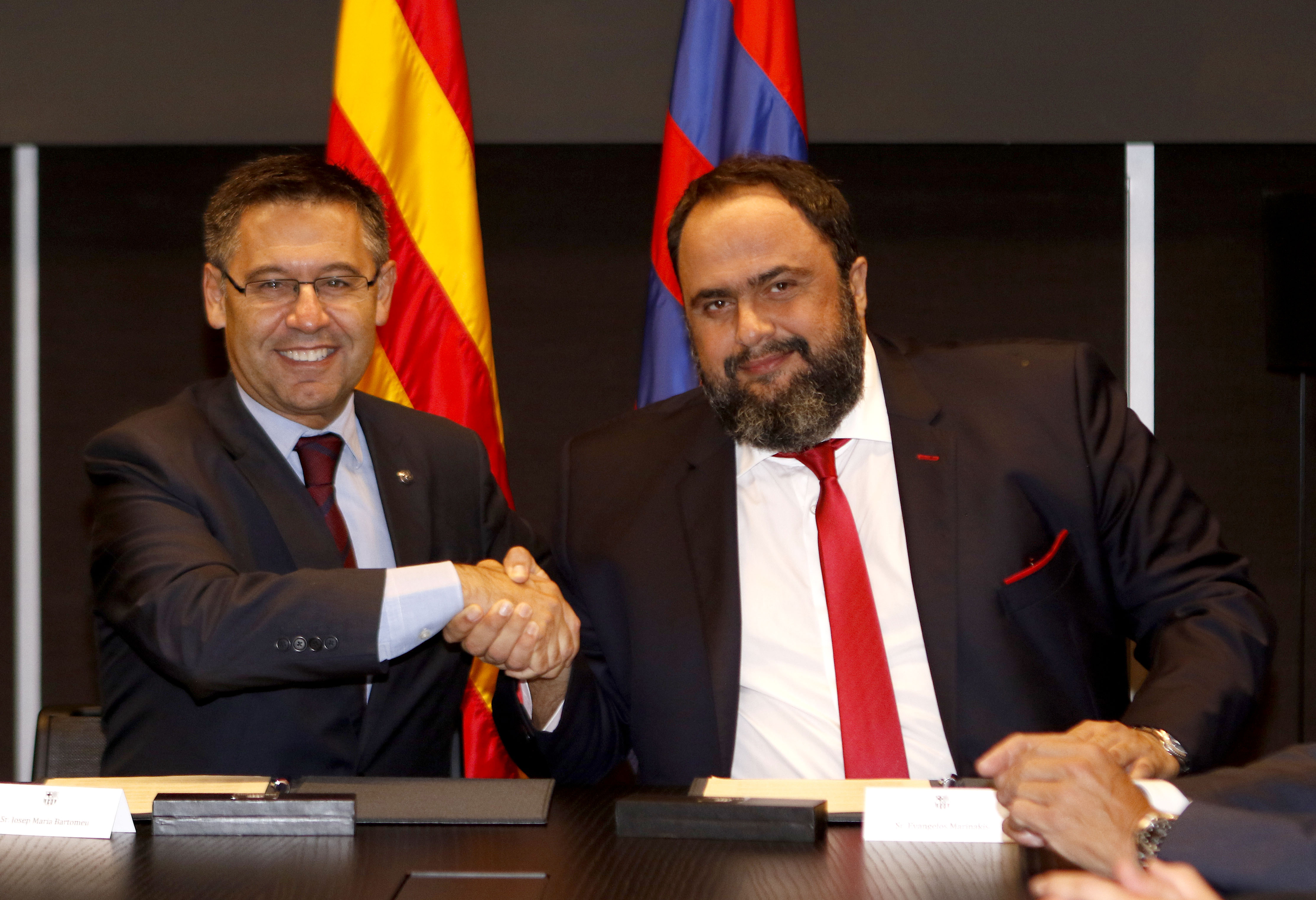In modern society, football has now a strong humanitarian aspect. Evangelos Marinakis was the first to sign the Athens Principle for the Right to Participate in Sports and, Wednesday evening, just before kick-off of Olympiacos important match at Camp Nou, Barcelona’s President Josep Bartomeu co-signed this particularly important document, drawn on the basis of offering to our fellow humans!
It was just a short while ago when the President of Olympiacos took this substantial initiative to host Harvard University in Greece and contribute massively in setting up a conference entitled “Reinforcing, Crossing, and Transcending Borders: Soccer in a Globalized World”.
A conference in the context of which new ideas, suggestions and actions came up, so as football contribute even more in the daily lives of ordinary people, by bring them close and erasing the borders between them! A very meaningful academic event during which scholars who have dedicated their lives to sports, discussed ideas and suggestions on the ways in which sports, and football in particular, can make a contribution to our society!
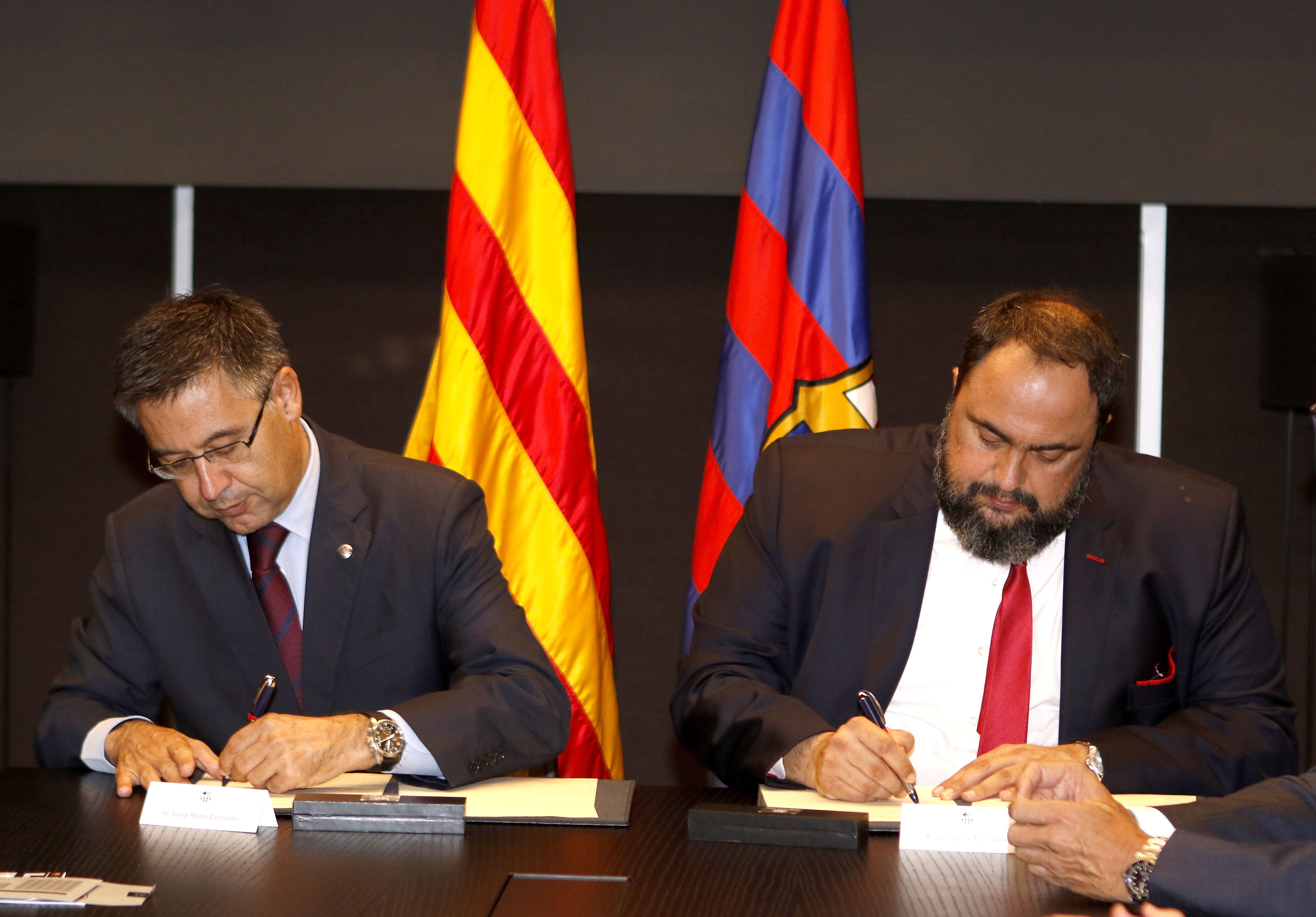
Camp Nou turned out the place where Olympiacos and Barcelona shook hands to further support this effort. In the presence of Harvard University’s Prof. Ortega, Mr Nick Mitropoulos, who strongly advocated this Olympiacos-Harvard partnership, Olympiacos Vice-President Giorgos Pavlou, Director of International Relations Konstantinos Vernikos and Mr Marinakis’s son Miltiadis, the President of the Catalan Josep Bartomeu co-signed the Athens Principle for the Right to Participate in Sports!
Blaugrana’s head figure discussed with Mr Marinakis various ideas and insights on the way in which football may deliver a bigger offering to society and mankind. The President of Olympiacos thanked Mr Bartomeu for backing the Athens Principle, as did Mr Ortega addressing his warm compliments to both clubs for their ongoing support to Harvard University’s effort!
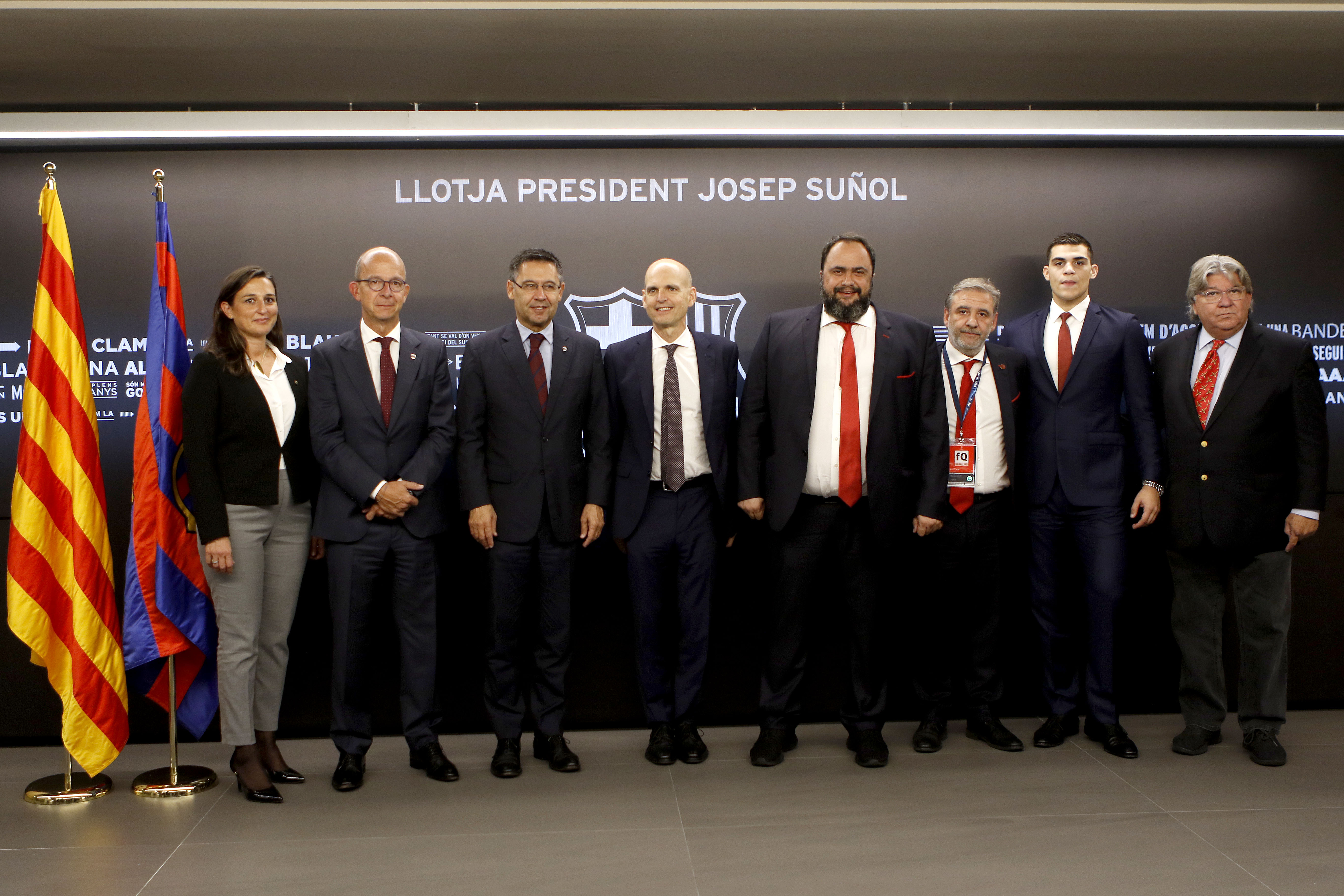
The Athens Principles on the Right to Participate in Sport:
Sport provides life skills and values that have a long lasting impact on people’s lives. It builds confidence, inspires youth, and helps overcome prejudice. It has the power of transcending borders and bringing people together, regardless of their race, gender, religion, culture or nationality.
The sport industry has grown significantly over the last few decades. Sport teams have worldwide followings and passionate groups of supporters who come from different social backgrounds. This broad base of support contributes to clubs’ widespread presence in social media and to the increased attention that sport organizations receive from the press.
This expanded visibility enables clubs and their players to influence public discussions and to embrace the added social responsibility that comes with such influence. This responsibility extends to ensuring that as many people as possible are able to play the games they love, without encountering discrimination or prejudice.
The responsibility of clubs and their players in promoting universal participation is even more crucial at a time when the number of displaced people in the world escaping conflict or persecution has reached its highest point in history. According to the UN High Commissioner for Refugees, 20 people are displaced from their homes every minute, a high percentage of whom are unaccompanied children and disabled men and women.
In the spirit of achieving universal participation, the 2015 UNESCO Sport Charter1 reaffirms that the right to participate in sport is a fundamental right for all. However, many people in the world are still deprived of this right because of lack of opportunity, lack of access or prejudice. It is therefore the responsibility of clubs and sport associations to help extend the benefits of participation in sport to individuals in all communities, especially those who are marginalized or vulnerable.
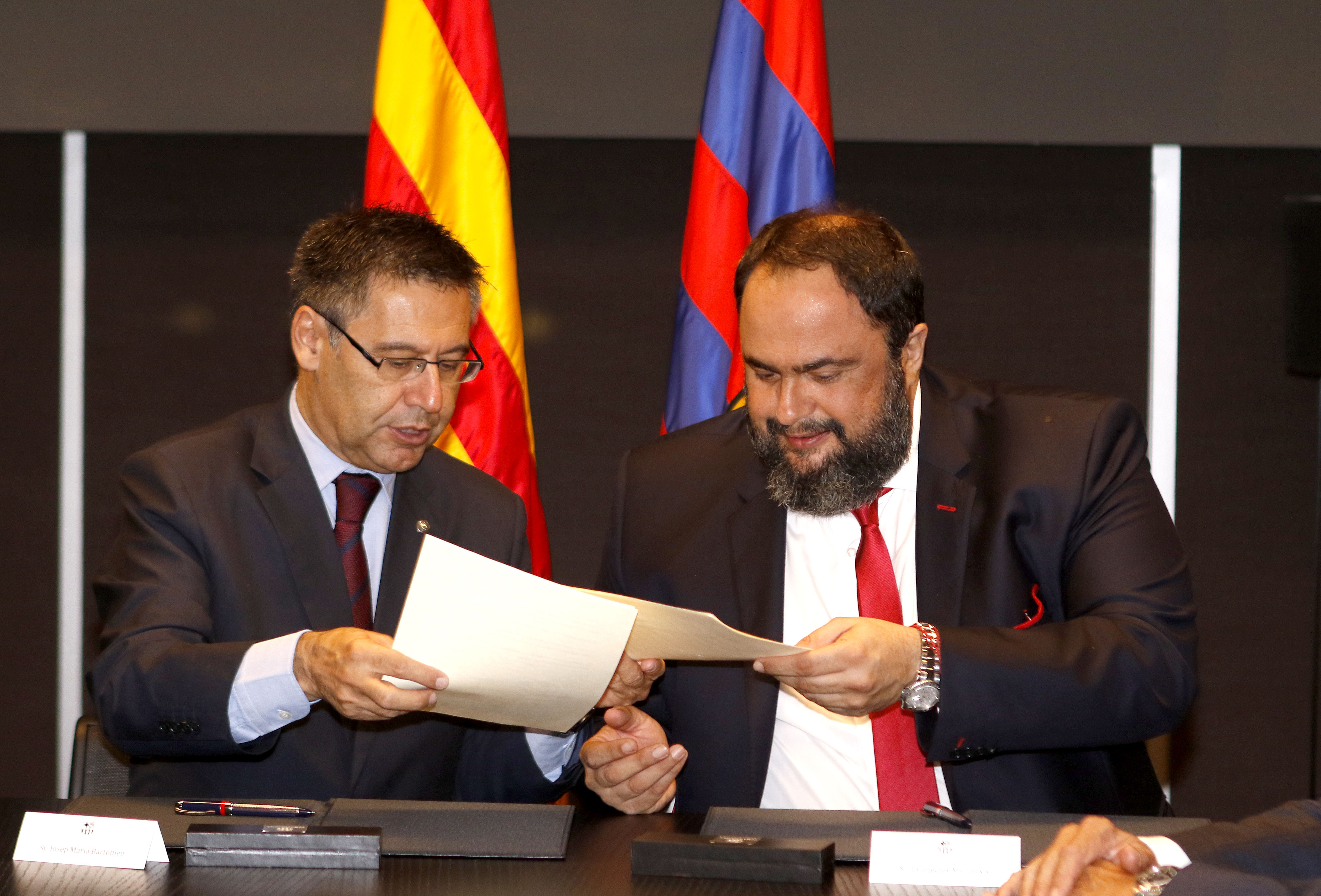
Guided by our social responsibilities and reflecting the rights and duties established in the UNESCO
Sport Charter, we agree to promote, support and implement the following 12 Principles:
1. This Declaration is a common standard of achievement for all clubs, teams, players and sports associations of all sports, to the end that every individual and company should strive, through education and example, to promote respect for these rights and to progressively secure their effective recognition and observance.
2. Every human being has a fundamental right to participate in sport without discrimination on the basis of ethnicity, gender, sexual orientation, language, religion, political or other opinion, or national or social origin. Furthermore, no distinction should be made on the basis of the political or international status of the country or territory to which a person belongs. Clubs and sport associations should actively campaign against and refuse to engage in any such discrimination at both youth and professional levels.
3. Participation in sport should be based on the principles of healthy and honest competition and respect for all competitors.
4. Initiatives that encourage the participation of displaced people, whatever their civil status, in sporting activities should be supported.
5. Sport for young people should be first and foremost about participation, physical activity and having fun.
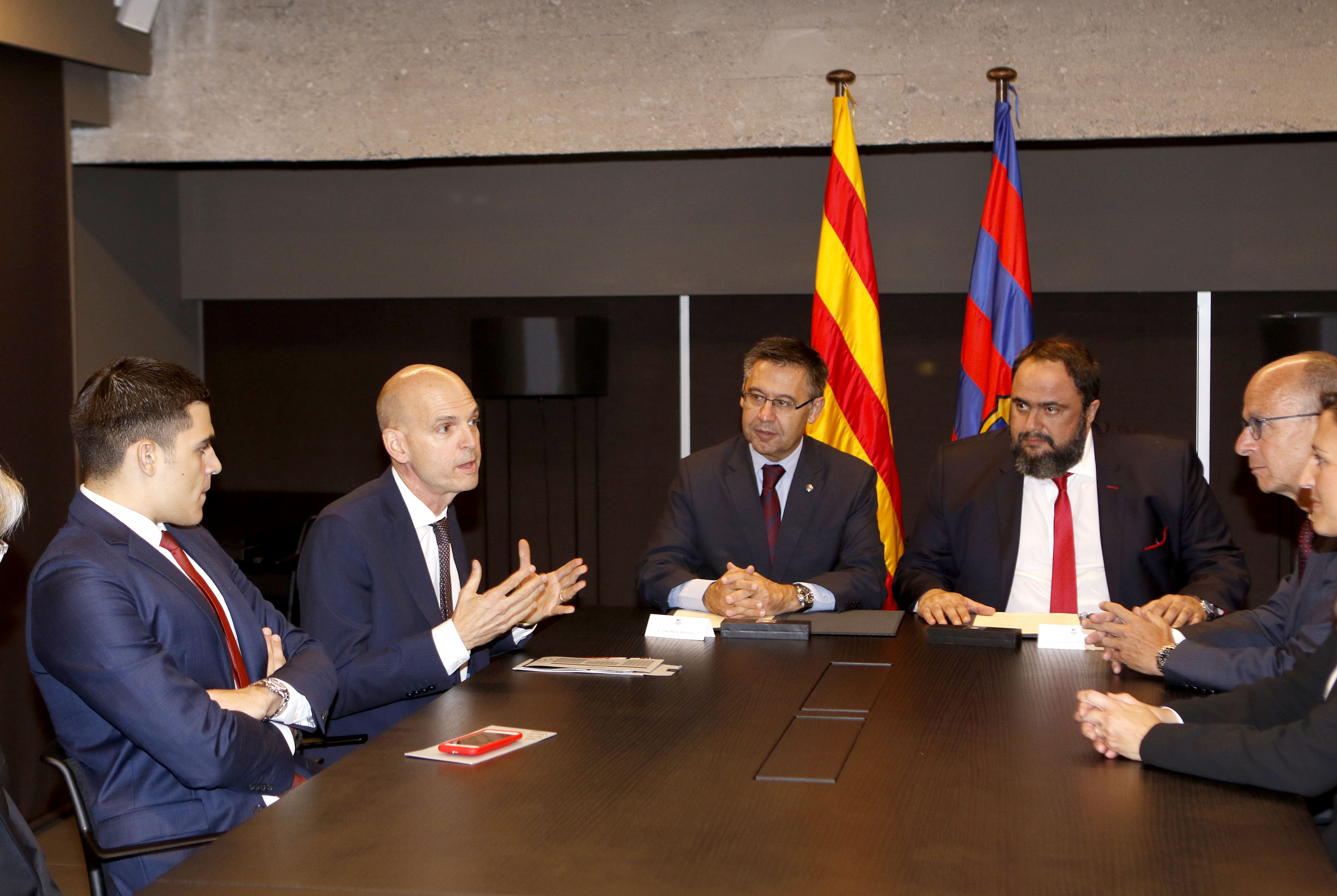
6. Girls should have as much access to sport and sport teams as boys, particularly in school and in youth games and leagues.
7. Everyone should have equal access without discrimination to sport training, resources and services, as well as the opportunity to participate in all supervision and decision-making at all levels of sport.
8. Clubs and sport associations agree to encourage greater participation in sport in conflict ridden or economically depressed areas and, when possible, to contribute financial resources, including providing used but appropriate equipment for the use of those people who lack adequate resources to participate in sport.
9. Adequate and safe places, facilities, equipment and dress-options should be provided to meet the needs of all participants in sport, bearing in mind the different needs associated with people of different cultures, genders, ages and abilities.
10. Sport facilities should be made more accessible to a greater percentage of the global population.
11. An International Day of the Right to Play should be declared to affirm the right to participate in sport as a universal and fundamental right and to promote the principles set out in this Declaration.
12. Initiatives should be developed to create partnerships with researchers and NGOs whose work will be helpful to implementing these principles.
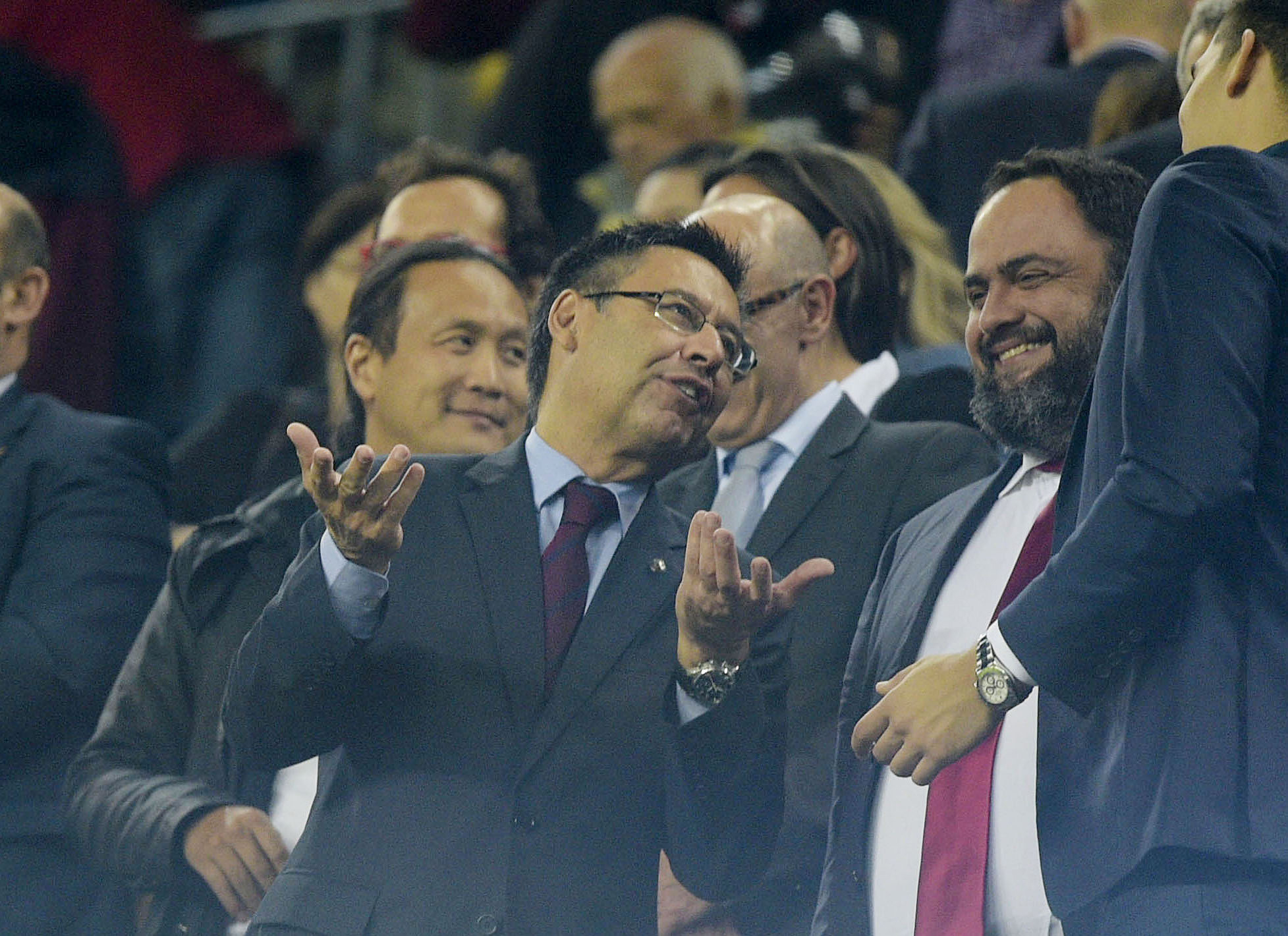
The President of Olympiacos watched our side’s match against Barcelona next to Mr Bartomeu. The two men continued their discussion covering also non-football issues, proving once again that the Legend belongs to the elite of European football; sport-wise and beyond that!
Mr Marinakis initiative was acknowledged by the President of one of the biggest clubs in the world and the Athens Principle keeps extending its reach, showing that football may stand next to people and do more than just offering them moments of entertainment.
